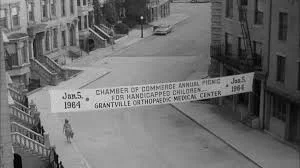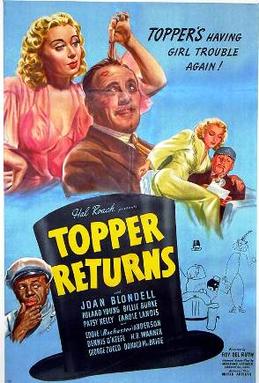A blog formerly known as Bookishness / By Charles Matthews
"Dazzled by so many and such marvelous inventions, the people of Macondo ... became indignant over the living images that the prosperous merchant Bruno Crespi projected in the theater with the lion-head ticket windows, for a character who had died and was buried in one film and for whose misfortune tears had been shed would reappear alive and transformed into an Arab in the next one. The audience, who had paid two cents apiece to share the difficulties of the actors, would not tolerate that outlandish fraud and they broke up the seats. The mayor, at the urging of Bruno Crespi, explained in a proclamation that the cinema was a machine of illusions that did not merit the emotional outbursts of the audience. With that discouraging explanation many ... decided not to return to the movies, considering that they already had too many troubles of their own to weep over the acted-out misfortunes of imaginary beings."--Gabriel García Márquez, One Hundred Years of Solitude
Search This Blog
Showing posts with label Patsy Kelly. Show all posts
Showing posts with label Patsy Kelly. Show all posts
Sunday, December 1, 2019
The Naked Kiss (Samuel Fuller, 1964)
The Naked Kiss (Samuel Fuller, 1964)
Cast: Constance Towers, Anthony Eisley, Michael Dante, Betty Bronson, Patsy Kelly, Karen Conrad, Marie Devereux, Virginia Grey, Linda Francis, Bill Sampson, Edy Williams. Screenplay: Samuel Fuller. Cinematography: Stanley Cortez. Art direction: Eugène Lourié. Film editing: Jerome Thoms. Music: Paul Dunlap.
The Naked Kiss begins with a bang: a woman beating the crap out of a man, using her shoe and everything else that comes to hand, even spritzing him with seltzer from a siphon before she finally knocks him cold, collects the $75 he owes her, replaces the wig that has fallen off her bald head during the fight, and departs. It's going to be hard to top that, you might think, unless you know Samuel Fuller's movies and can be sure that he will. We learn that she's called Kelly, that she's a prostitute, and the man she's beating up is her pimp, who shaved her head as a punishment. Some time later, long enough for her hair to have grown back fully, we catch up with her arriving in the town of Grantville, posing as a traveling saleswoman with a sample kit of a Champagne called Angel Foam. And it's there that she will try, after one last trick with the good-looking town police captain named Griff, to go straight. She gets a job in the local hospital for children with disabilities, thrives, and gets engaged to the town's most prominent citizen, a man named Grant. Of course, when we first encounter Grant, who is handsome in a particularly oily way, we know that things won't go right -- even after Kelly confesses about her past to him and he accepts her anyway. This is melodrama at its pulpiest, and Fuller makes the most of it in his own special way. There is nothing "realistic" about The Naked Kiss. You might even call it "para-realistic" -- existing somewhere alongside reality in the way lurid fictions do. Fuller's films, made without benefit of the budgets and technical resources of the big studios, look like the work of someone playing with the available money and resources to express a private vision that's slightly askew, like memories or even dreams of big studio movies. They're filled with unexpected details, such as Kelly's wig or the dressmaker's dummy that Kelly's landlady costumes in the uniform of her late fiancé, killed in the war. They make us laugh as much as they creep us out. There's even a slightly hallucinatory quality to the disabled kids Kelly works with, who are called on for a performance of a song known as "Little Child," which takes on a sinister irony when we discover that Grant, for whom Kelly stages the performance, is a pedophile. Sometimes I'm not even certain if I watched The Naked Kiss or if I dreamed it.
Saturday, April 15, 2017
Topper Returns (Roy Del Ruth, 1941)
This silly B-picture was just the thing to unwind with after the heaviness of the last couple of posts. It's the second of two sequels to the original Topper (Norman Z. McLeod, 1937), about a stuffy banker beset by sexy ghosts. But it doesn't have much in common with the first movie other than Roland Young as Topper and Billie Burke as his fluttery, suspicious wife who mistakes his odd behavior for infidelity when the ghosts start teasing him. Cary Grant and Constance Bennett were the mischievous ghosts in the first film, but Grant jumped ship before the first sequel, Topper Takes a Trip (McLeod, 1938), after which Bennett bailed out too. This time the sexy ghost is Joan Blondell, whose character, Gail Richards, is murdered by mistake: The intended victim was her friend, Ann Carrington (Carole Landis), heir to a large fortune. Once she passes over, the ectoplasmic Gail enlists Topper, of all people, in helping solve her murder. Young is, as always, a delight -- one of the greatest comic actors ever to be underemployed by Hollywood -- but he doesn't have a lot to do this time except be shoved around by the invisible Gail as they search for clues in the creepy mansion where she was murdered. Mrs. Topper shows up, too, accompanied by her maid (Patsy Kelly) and the chauffeur, played by Eddie Anderson, billed as Eddie "Rochester" Anderson because of his fame as the eponymous chauffeur on Jack Benny's radio show. Even though he's called "Eddie" by Topper and "Edward" by Mrs. Topper, he manages to slip in a line about how he wants his old job with Mr. Benny back. Although Anderson is given some stereotypical moments predicated on the old gag that black people are afraid of ghosts, and there's a tedious slapstick bit involving a sea lion (oh, don't ask), he's treated as more of a comic equal in the film than African American actors usually were, matching wisecrack for wisecrack. There are also some funny moments with Donald MacBride as a particularly addled police detective. The whole thing is laced through with topical gags that have lost their edge: Rafaela Ottiano plays a sinister housekeeper modeled on Mrs. Danvers in Rebecca (Alfred Hitchcock, 1940), and if you don't get the joke immediately be sure that someone will refer to her as "Rebecca," even though her character's name is Lillian. The movie is also a reminder of how pervasive radio once was in popular culture: In addition to Anderson's reference to Jack Benny, there are also quips about Orson Welles's "War of the Worlds" broadcast, and a radio giveaway show called "Pot o' Gold" in which people won the jackpot if they answered their randomly dialed telephone.
Subscribe to:
Comments (Atom)














